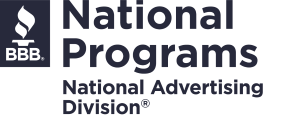
New York, NY – December 6, 2023 – The National Advertising Division (NAD) of BBB National Programs referred advertising claims made by PDC Brands for its Dr. Teal’s branded adult and kid’s lines of melatonin sleep products to the Federal Trade Commission (FTC) for review.
PDC Brands declined to participate in the industry self-regulation process, and as a result, NAD has referred its advertising claims to the FTC.
The claims at issue, which were challenged by The Procter & Gamble Company (P&G), appeared on product packaging, Dr. Teal’s website, and social and digital media in connection with Dr. Teal’s topical bath soaks, scrubs, moisturizers, balms, and sprays. P&G argued that claims for these products were unsupported and misled consumers into believing that they deliver melatonin-derived sleep benefits that consumers have become familiar with (i.e., helping them and/or their children fall asleep and stay asleep).
During the inquiry, PDC Brands stated that, for reasons unrelated to the challenge, certain challenged claims were in the process of being modified or permanently discontinued. Therefore, NAD did not review these claims on their merits.
PDC declined to participate in the NAD self-regulatory process with respect to the remaining challenged claims, contending that they do not attribute any specific benefit to melatonin:
- Teal’s “Sleep Balm —with Melatonin & Essential Oils”
- Teal’s Body Lotion —“Sleep Lotion with Melatonin & Essential Oils”
- Teal’s kids—“sleep spray with melatonin & essential oils”
- Teal’s kids Gentle Epsom Salt Bath—“sleep soak with melatonin & essential oils”
- Teal’s kids Body Lotion—“sleep lotion with melatonin & essential oils”
- Teal’s kids—“sleep body balm with melatonin & essential oils”
- Teal’s kids 3-in-1 Bubble Bath, Body Wash & Shampoo—“sleep bath with melatonin & essential oils”
- “Just spritz pillows and bedding with the Sleep Spray and rub the Sleep Balm on their back, chest, or feet. They’ll be dreaming in no time.”
- “The secret to a good night’s rest is Dr. Teal’s Sleep Lotion with Melatonin and Essential Oils.”
As a result of PDC’s decision not to participate in the NAD self-regulatory process with respect to these claims, NAD has referred the matter to the FTC for review and possible enforcement action.
All BBB National Programs case decision summaries can be found in the case decision library. For the full text of NAD, NARB, and CARU decisions, subscribe to the online archive. This press release shall not be used for advertising or promotional purposes.
About BBB National Programs: BBB National Programs, a non-profit organization, is the home of U.S. independent industry self-regulation, currently operating more than a dozen globally recognized programs that have been helping enhance consumer trust in business for more than 50 years. These programs provide third-party accountability and dispute resolution services that address existing and emerging industry issues, create a fairer playing field for businesses, and a better experience for consumers. BBB National Programs continues to evolve its work and grow its impact by providing business guidance and fostering best practices in arenas such as advertising, child-and-teen-directed marketing, data privacy, dispute resolution, automobile warranty, technology, and emerging areas. To learn more, visit bbbprograms.org.
About the National Advertising Division: The National Advertising Division (NAD) of BBB National Programs provides independent self-regulation and dispute resolution services, guiding the truthfulness of advertising across the U.S. NAD reviews national advertising in all media and its decisions set consistent standards for advertising truth and accuracy, delivering meaningful protection to consumers and leveling the playing field for business.
Contact Information
Name: Jennie Rosenberg
Email:jrosenberg@bbbnp.org
Job Title: Media Relations
National Advertising Division Finds Dr. Squatch “No Harmful Ingredients” Claim Supported; Recommends Other Comparative Claims be Discontinued
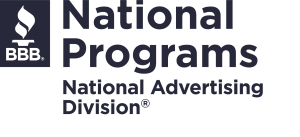
New York, NY – December 5, 2023 – The National Advertising Division (NAD) of BBB National Programs determined that Dr. Squatch, LLC provided a reasonable basis for its “no harmful ingredients” claim for its Dr. Squatch brand of personal care products for men and that certain challenged claims, in context, do not convey a disparaging message as to competing brands.
However, NAD recommended that Dr. Squatch discontinue its use of the skull and crossbones imagery in the context of the “no harmful ingredients” and “Sh*t List” claims, certain comparative claims, as well as certain other claims that NAD found to be falsely disparaging, unsubstantiated, and/or misleading, including:
- “For generations, traditional mass-market brands have been avoiding using natural ingredients in personal care products to make production cheaper and faster.”
- “I’m never going back to aluminum deodorant again!”
- “No X ALUMINUM X TRICLOSAN X PHTHALATES . . . can’t go back to that other junk”
- “Don’t hit the showers with neon goop that looks like a sports drink.”
- “I can even pronounce all the ingredients unlike my last deodorant.”
Dr. Squatch markets natural personal care products and distinguishes itself from other personal care competitors through edgy and attention-grabbing content.
The claims at issue, which appeared on the Dr. Squatch website, in video advertisements, social media, and videos on YouTube, were challenged by Unilever U.S., Inc., manufacturer of Dove brand cleansers and body washes.
No Harmful/Harsh Ingredient Claims
NAD determined that the following challenged claims are monadic or appear in a monadic context and do not convey the implied message that competing products are harmful or dangerous:
- “No harmful ingredients”
- “We never use harmful ingredients or harsh chemicals…”
- “Blocks out B.O. without harsh chemicals” and “doesn’t burn my armpits or leave me with a rank B.O. mid-day”
NAD further determined that Dr. Squatch’s monadic “no harmful ingredients” claim was supported and that it provided a reasonable basis for the message that Dr. Squatch deodorant does not contain harsh chemicals and would, therefore, not burn a user’s armpits.
However, NAD determined that the skull and crossbones imagery that often accompanies the “no harmful ingredients” and “Sh*t list” claims does more than merely underscore a monadic message. The imagery reasonably conveys a message related to potential harms of ingredients found in personal care products and, when displayed in the context of the “Sh*t List,” further conveys a message that the ingredients listed, which include non-chemical and non-harmful ingredients, are harmful. As there was no support in the record that the ingredients Dr. Squatch excludes from its products result in the type of harm associated with skull and crossbones, NAD recommended that such imagery be discontinued.
NAD concluded that a comparative superiority message was not communicated by:
- Squatch’s reference to the “Sh*t List,” and
- The claim “Meet our Sh*t List, a roster of ingredients that we vow to never use in any of our products. We refuse to cut corners and we avoid both common and lesser-known chemicals, synthetics, and preservatives that can have a range of adverse effects on your skin and body.”
“The Personal Care Industry Needs Cleaning” Message
NAD found that Dr. Squatch’s claim that “the personal care industry needs cleaning” will likely be understood as a high-level reference to Dr. Squatch’s commitment to products with natural ingredients. Therefore, NAD found that the claim does not reasonably convey the message that competing products are harmful.
“For Generations, Traditional Mass Market Brands Have Been Avoiding Using Natural Ingredients in Personal Care Products to Make Production Cheaper and Faster” Claim
NAD determined that Dr. Squatch did not provide a reasonable basis for the claim “For generations, traditional mass market brands have been avoiding using natural ingredients in personal care products to make production cheaper and faster” and recommended that it be discontinued.
Free-From Claims
NAD concluded that Dr. Squatch’s claims “I’m never going back to aluminum deodorant again!” and “No X ALUMINUM X TRICLOSAN X PHTHALATES . . . can’t go back to that other junk,” as they appear in a comparative context in the challenged advertising convey the misleading message that other deodorant products are unsafe or pose potential risks or dangers.
As there was no evidence in the record that conventional deodorants (made by Unilever or other major brands) contain triclosan or phthalates, or that brands that contain these ingredients or aluminum are dangerous or unsafe, NAD recommended that Dr. Squatch discontinue these claims.
NAD noted that nothing in its decision prevents Dr. Squatch from highlighting the ingredients its products do not contain in a purely monadic context.
Regarding the modified claim “Let’s talk aluminum . . . sure it’s great for wrapping up leftovers but we avoid it for skin and body,” NAD concluded that in a purely monadic context, the claim does not convey a disparaging message as to competing brands.
“Don’t Hit The Showers With Neon Goop That Looks Like A Sports Drink” Message
NAD determined that the claim “don’t hit the showers with neon goop that looks like a sports drink,” in context is falsely disparaging because it conveys an implied superiority message that mainstream personal care products (some of which may be brightly-colored) have a goop-like or unappealing consistency, do not smell good, and are ultimately worthless. NAD recommended that Dr. Squatch discontinue the challenged claim.
NAD noted that nothing in its decision precludes Dr. Squatch from highlighting the benefits of its products, provided, however, the advertising does not otherwise convey the message that competing products are worthless.
“I Can Even Pronounce All The Ingredients Unlike My Last Deodorant” Claim
As Dr. Squatch did not provide any support for the challenged claim “I can even pronounce all the ingredients unlike my last deodorant” NAD determined that the advertiser did not provide a reasonable basis for the claim and recommended that it be discontinued.
Finally, during the proceeding, Dr. Squatch agreed to permanently discontinue several challenged claims. Therefore, NAD did not review these claims on their merits and will treat them for compliance purposes as though NAD recommended they be discontinued and Dr. Squatch agreed to comply.
In its advertiser statement, Dr. Squatch stated that it “appreciates NAD’s careful review of its advertisements and will comply with NAD’s recommendations in its future advertising” although it disagrees with several of NAD’s findings.
All BBB National Programs case decision summaries can be found in the case decision library. For the full text of NAD, NARB, and CARU decisions, subscribe to the online archive. This press release shall not be used for advertising or promotional purposes.
About BBB National Programs: BBB National Programs, a non-profit organization, is the home of U.S. independent industry self-regulation, currently operating more than a dozen globally recognized programs that have been helping enhance consumer trust in business for more than 50 years. These programs provide third-party accountability and dispute resolution services that address existing and emerging industry issues, create a fairer playing field for businesses, and a better experience for consumers. BBB National Programs continues to evolve its work and grow its impact by providing business guidance and fostering best practices in arenas such as advertising, child-and-teen-directed marketing, data privacy, dispute resolution, automobile warranty, technology, and emerging areas. To learn more, visit bbbprograms.org.
About the National Advertising Division: The National Advertising Division (NAD) of BBB National Programs provides independent self-regulation and dispute resolution services, guiding the truthfulness of advertising across the U.S. NAD reviews national advertising in all media and its decisions set consistent standards for advertising truth and accuracy, delivering meaningful protection to consumers and leveling the playing field for business.
Contact:
Jennie Rosenberg
Media Relations
BBB National Programs
press@bbbnp.org
BEEAH, Chinook Hydrogen, and Air Water Gas Solutions Inaugurate the World’s First Super Green Hydrogen from Waste Demonstration plant at COP28
Building on several breakthroughs achieved in its a waste-to-hydrogen demonstration plant, BEEAH, the Middle East’s sustainability pioneer, Chinook Hydrogen, a UK-based innovator of waste-to-fuel technologies, and Air Water Gas Solutions, a US-based Industrial gas company and a subsidiary of Air Water Inc., a leading Japanese conglomerate with advanced industrial gases technologies, have entered a joint development agreement (JDA) to develop the world’s first commercial-scale waste-to-hydrogen plant in Sharjah, UAE. In the presence of His Excellency Eng. Sharif Al Olama, Undersecretary for Energy and Petroleum Affairs at the Ministry of Energy and Infrastructure (MoEI), the JDA was signed at the UAE Pavilion, COP28, by Khaled Al Huraimel, Group CEO of BEEAH Group, Dr. Rifat Chalabi, CEO and Co-Founder of Chinook Hydrogen, and Ishmael Chalabi, President and CEO of Air Water Gas Solutions.
The JDA will build on the success of the hydrogen-from-waste demonstration plant, which has achieved major breakthroughs by demonstrating an attractive, carbon-negative solution to produce green hydrogen from waste. The demonstration plant transforms various organic-based waste, including Municipal Solid Waste (MSW), non-recyclable plastics and wood waste, into super green hydrogen that is connected to a Toyota fuel-cell unit that generates power from the hydrogen produced, similar to the fuel cell installed in hydrogen fuel cell vehicles such as the Toyota Mirai.
“We believe achieving zero-waste to landfill goes hand-in-hand with achieving net-zero emissions. With the launch of this waste-to-hydrogen demonstration plant, we have achieved a solution that we can address the challenge of waste and carbon emissions. It can also be scaled and replicated in countries around the world, and together, we will now begin with a commercial-scale plant in Sharjah,” said Khaled Al Huraimel, Group CEO of BEEAH. “I would like to congratulate Chinook Hydrogen and Air Water Gas Solutions for working with us to realise this milestone, which not only supports our objective of creating a large commercial waste-to-hydrogen plant in UAE, but also demonstrates an economically and environmentally attractive hydrogen production solution that can be easily adopted worldwide.”
The demonstration plant benefits from Chinook Hydrogen’s RODECS ® pyrolysis technology, developed and optimised over 23 years with 18 gasification units installed world-wide. The technology is heavily patented, using “Active-Hydropyrolysis™” to process a wide range of post-consumer organic-based wastes in batches, including MSW, non-recyclable plastics, sewage sludge, biomass and waste wood feedstocks to produce a syngas. Chinook Hydrogen’s RODECS system is the only one in the world to process waste with low energy content to yield syngas with hydrogen concentrations of around 50%vol. In this system, the hydrogen rich syngas is further processed by advanced hydrogen refinement technology developed by Air Water to produce high purity fuel-cell grade hydrogen for use in transportation, fine chemical and industrial applications. The plant can also capture and store carbon dioxide from the syngas, making the process carbon negative.
“It is with immense pride and gratitude that I reflect on a journey marked by unwavering dedication and unparalleled innovation. This breakthrough hydrogen technology that we have developed is testament to the hard work and ingenuity of the Chinook team over the last 23 years and the decades-long collaboration with our partners BEEAH and Air Water Gas Solutions. That is 23 years of innovation wrapped by persistence and dedication,” said Dr. Rifat Chalabi, Chairman, CEO and Co-Founder of Chinook Hydrogen. “In the realm of green hydrogen technology, we have not only merely advanced or pushed boundaries, we have pioneered the world’s first plant that produces Super-Green-Hydrogen™ that can fuel hydrogen fuel cells either for power generation or emissions-free mobility.”
The RODECS pyrolysis and gasification system in the demonstration facility is capable of producing up to 1.5 tonnes per day of hydrogen. The combined Active-Hydropyrolysis process controlled by the Hydrogen-Intelligence system ensures the production of the “Super-Green-Hydrogen™”, which offers one of the world’s lowest levelised cost of hydrogen (LCoH) today. Chinook Hydrogen, Air Water Gas Solutions, and BEEAH plan to implement a similar process and system, establishing the world’s first commercial-scale, hydrogen-from-waste facility in Sharjah, UAE, with an initial capacity of seven tonnes per day. The goal is to progressively augment the Sharjah plant capacity to reach 20 tonnes per day and extend the concept and innovation behind this plant throughout the Middle East.
Aligning with the UAE’s Net-Zero by 2050 Pathway, BEEAH has made significant strides in increasing landfill waste diversion rates and contributing to net-zero emissions. Its integrated waste management complex comprises 12 facilities, which process nearly all types of households, commercial and industrial waste, to produce recyclables, alternative fuels and alternative raw materials, enabling steadily increasing landfill waste diversion rates and contributions to the circular economy.
In May of 2022, BEEAH inaugurated the Sharjah Waste-to-Energy plant, the first project of BEEAH’s joint venture with global renewable energy leader Masdar, which further drove landfill waste diversion to a new regional record of 90% and displaces 450,000 tonnes of CO2 a year.
In addition to the decarbonisation of the transport industry and lowering emissions in the waste management sector, the planned waste-to-hydrogen plant in Sharjah is also strategically aligned with the UAE National Hydrogen Strategy 2050, which sets a goal of producing of 1.4 million tonnes of hydrogen per annum by 2031 and aims to establish the nation as one of the world’s major hydrogen hubs.
Contact Information
Name: Mohamed Allawi
Email: mallawy@beeahgroup.com
Job Title: Public Relations Specialist
iCrowdNewswire Announces Next-Generation Products in AI Press Release Distribution at Hong Kong Press Release Industry and Partner Summit

Miami, Florida – December 4, 2023. iCrowdNewswire, press release industry leading innovators, announced their next-generation plans for state-of-the-art AI powered press release distribution at the November 23rd Hong Kong Summit. The Summit host shared next level planned implementations around visibility and engagement to move press release capabilities from guaranteed distribution to guaranteed engagement, highlighting their industry exclusive demand generation features.
Hector Botero, CEO and Founder of iCrowdNewswire, enthusiastically stated, “The press release distribution market is ripe for breakthrough innovations, marking the latest frontier in leveraging the unparalleled power of AI. With our next-generation plans unveiled at the Hong Kong Summit, we are committed to transforming the industry by moving beyond guaranteed distribution to guaranteed engagement.”
Mr. Botero emphasized the significance of embracing new AI technologies, acknowledging the industry’s evolving landscape. He added, “We believe in challenging the status quo and maximizing visibility and engagement for our industry. The future of press release distribution is intelligent, data-driven, and highly targeted.”
According to iCrowdNewswire COO Sonia LaFountain, “Our state-of-the-art implementations uniquely merge corporate communications and digital marketing. The result of our methodology is unrivaled; precision demand generation tooling with guaranteed ROI enhanced reporting, accurate and actionable visibility and engagement for PR and Marketing professionals with guaranteed outcomes that meet their specific goals. We’re talking real data directly from engagement platforms that learn and adapt placement based on audience behavior.”
iCrowdNewswire shared the spotlight of the inaugural event with co-host Media Outreach (Asia) and an impressive lineup of press release distribution leaders including Medianet (Asia-Pacific), PA Media (UK) and Nexis Newswire (Global). Partners provided important insights on distribution features that resonate for customers in their regions as well as challenges to address the need for a modern experience. Amrita Sidhu, Managing Director of Medianet championed iCrowdNewswire’s efforts to adopt new AI technologies, commenting, “The six most dangerous words in business: We have always done it this way,” reminding the audience that we have an opportunity to maximize visibility and engagement for our industry.
iCrowdNewswire’s Q1 2024 launch of the new product lineup will feature tooling from Google, LinkedIn, Instagram, Facebook, TikTok, YouTube and other high performance social platform’s leveraging AI demand generation capabilities to precision target audiences based on audience behaviors and predictive engagement. These capabilities pinpoint audiences with high propensity to view and engage with your release based on target audience specifications including demographics, geographics, industries and interests.
The full recap of the Hong Kong Press Release Industry and Partner Summit, can be viewed at the link: iCrowdNewswire – Hong Kong Press Release Industry Summit – AI Powered Press Release Distribution November 2023
About iCrowdNewswire
In 2018 iCrowdNewswire began working with Google to adapt the world’s leading advertising, translation, voice, and analytics technologies for press release distribution resulting in a process that offers press release issuers with an ultra-user-friendly interface to choose from millions of websites worldwide. Issuers can refine targeting by further choosing specific sections within websites, choose countries, states and zip or postal codes. Demographic targeting includes age groups, interests and industry, and recent research with media indicates that promoting releases prominently on media websites is by far the most efficient way to reach media. iCrowdNewswire’s technology also drives the LexisNexis press release service Nexis Newswire and ALM’s Legal Newswire powered by Law.com
National Advertising Division Recommends Royal Oak Modify or Discontinue Certain Claims for its Super Size Briquets
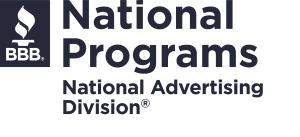
New York, NY – November 30, 2023 – In a challenge brought by Kingsford Products Company, the National Advertising Division (NAD) of BBB National Programs recommended that Royal Oak Enterprises, LLC:
- Discontinue the claim that Royal Oak Super Size briquets are 50% bigger than Kingsford Original briquets.
- Modify its advertising to avoid conveying a message that Royal Oak Super Size briquets provide the “best grilling experience” because they burn hotter and longer than competing briquets due to their larger size.
- Discontinue the claim that “a bigger briquet is a better briquet” or modify its advertising to limit the claim to consumer meaningful benefits for which Royal Oak has substantiation.
50% Bigger Claim
For Royal Oak’s advertisements, in which the object of comparison of its 50% bigger claim is not stated, NAD found that consumers may reasonably understand the comparison to be against Kingsford since Kingsford Original briquets comprise a significant share of the charcoal briquet market. Therefore, NAD assessed whether the 50% bigger claim was accurate with respect to Kingsford Original briquets.
NAD determined that Royal Oak’s testing in support of its “50% bigger” claim did not provide representative, statistically significant, and reliable support and recommended that the claim be discontinued.
NAD noted that Royal Oak is free to promote the size of its Super Size briquets or that its Super Size briquets are larger than competitive brands such as Kingsford, but any comparative size claims must not overstate the relevance of the size difference.
“Best Grilling Experience”
NAD found that in the challenged advertising the “best grilling experience” is linked to measurable product attributes; namely, the ability of the Super Size briquets to light fast and provide high heat and a long burn time. As the claim is linked to measurable performance within a comparative context, NAD concluded that it is not puffery and Royal Oak must have support for the claim.
Given that variables other than size may affect the performance of each briquet, NAD determined that Royal Oak’s comparative performance claim cannot be supported by reference to the products’ differences in size alone. Rather, the claim should be supported by properly conducted testing demonstrating that the briquets burn hotter and longer than competing briquets.
As Royal Oak did not provide such support, NAD recommended they modify advertising to avoid conveying a message that Royal Oak Super Size briquets provide the “best grilling experience” because they burn hotter and longer than competing briquets due to their larger size.
“A Bigger Briquet is a Better Briquet”
NAD determined that consumers may reasonably understand a “bigger is better” claim to mean more than just that a bigger briquet size is valuable but that a bigger briquet size is comparatively better in some recognizable or measurable way with respect to overall grilling performance. In some advertising, Royal Oak specifically ties the “bigger is better” claim to burn time and speed of combustion and thus reasonably conveys the message that a bigger briquet size corresponds to superior performance with respect to longer burn time and faster lighting.
Royal Oak did not present sufficient evidence to show that a bigger briquet size provides an overall performance advantage over smaller briquets or superior burning or combustion. Therefore, NAD recommended that Royal Oak either discontinue the claim that a bigger briquet is a better briquet or modify its advertising to limit the claim to consumer meaningful benefits for which Royal Oak has substantiation.
During the proceeding Royal Oak permanently discontinued several other challenged claims. Therefore, NAD did not review these claims on the merits.
In its advertiser statement, Royal Oak stated that that it “will comply with the NAD’s recommendations for the claims addressed in this Final Decision.”
All BBB National Programs case decision summaries can be found in the case decision library. For the full text of NAD, NARB, and CARU decisions, subscribe to the online archive. This press release shall not be used for advertising or promotional purposes.
About BBB National Programs: BBB National Programs, a non-profit organization, is the home of U.S. independent industry self-regulation, currently operating more than a dozen globally recognized programs that have been helping enhance consumer trust in business for more than 50 years. These programs provide third-party accountability and dispute resolution services that address existing and emerging industry issues, create a fairer playing field for businesses, and a better experience for consumers. BBB National Programs continues to evolve its work and grow its impact by providing business guidance and fostering best practices in arenas such as advertising, child-and-teen-directed marketing, data privacy, dispute resolution, automobile warranty, technology, and emerging areas. To learn more, visit bbbprograms.org.
About the National Advertising Division: The National Advertising Division (NAD) of BBB National Programs provides independent self-regulation and dispute resolution services, guiding the truthfulness of advertising across the U.S. NAD reviews national advertising in all media and its decisions set consistent standards for advertising truth and accuracy, delivering meaningful protection to consumers and leveling the playing field for business.
Contact:
Jennie Rosenberg
Media Relations
BBB National Programs
press@bbbnp.org
National Advertising Division Finds Certain Xfinity Home Internet Claims Supported; Recommends Comcast Modify or Discontinue Others
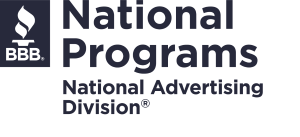
New York, NY – November 30, 2023 – In a challenge brought by Verizon Communications Inc., the National Advertising Division (NAD) of BBB National Programs determined that Comcast Cable Communications, LLC provided a reasonable basis for its Xfinity home internet claim stating “It’s time for better internet. Switch to Xfinity” in context tied to its superiority in speed, consistency, and reduced lag and latency. However, NAD recommended that Comcast modify or discontinue certain other claims about Verizon’s 5G Home Internet.
Comparative Network Claims
NAD determined that one message reasonably conveyed by Comcast’s “Stink Eye” and “Life with Verizon” commercials, a 60-second radio ad for Xfinity, and a 15-second commercial is that Verizon’s 5G Home is ineffective, slow, unreliable, and prone to subpar performance due to congestion, rendering the service unusable.
Based on data submitted by Comcast, NAD concluded that Comcast’s fixed wired internet network outperforms Verizon’s 5G wireless internet network with respect to speed, latency, and consistency of speed. While Comcast should be able to accurately communicate the relevant consumer benefits of its Xfinity internet service and other competitive advantages that it has over Verizon 5G Home, NAD determined that there is no evidence indicating that Verizon 5G users receive subpar internet speed or experience network reliability issues that impede their ability to use or access Verizon 5G.
Therefore, NAD found that Comcast did not support disparaging claims made about Verizon 5G Home and recommended the discontinuation or modification of the challenged express claims:
- “I just got Verizon 5G Home Internet. It means I have to kick people off sometimes to help with the speed.”
- “This is life with Verizon 5G Home Internet.”: “Lag Alert!” “Cell tower too far!” “Congested network!” “Trees blocking signal.”
- “Problems pop up when you have Verizon 5G Home Internet.”
- “Verizon 5G Home Internet sounded great… but turned out to be something else.”
- “Verizon 5G Home Internet is for phones, not homes.”
NAD further recommended that Comcast modify its advertising to avoid conveying the challenged implied message that Verizon 5G Home is too slow, unreliable, and prone to such subpar performance as to render the service unusable due to congestion, trees, and other obstacles.
Superior Network Claim
Based on comparative performance data, NAD determined that Comcast provided a reasonable basis for its claim, “It’s time for better internet. Switch to Xfinity” if it is made in a context that ties its superiority to speed, consistency, and reduced lag and latency.
In its advertiser statement, Comcast stated that it “agrees to comply with NAD’s recommendations with respect to the subject advertising” although it “does not agree that the challenged advertising communicated a message that network congestion renders Verizon’s 5G Home Internet unreliable or unusable.”
All BBB National Programs case decision summaries can be found in the case decision library. For the full text of NAD, NARB, and CARU decisions, subscribe to the online archive. This press release shall not be used for advertising or promotional purposes.
About BBB National Programs: BBB National Programs, a non-profit organization, is the home of U.S. independent industry self-regulation, currently operating more than a dozen globally recognized programs that have been helping enhance consumer trust in business for more than 50 years. These programs provide third-party accountability and dispute resolution services that address existing and emerging industry issues, create a fairer playing field for businesses, and a better experience for consumers. BBB National Programs continues to evolve its work and grow its impact by providing business guidance and fostering best practices in arenas such as advertising, child-and-teen-directed marketing, data privacy, dispute resolution, automobile warranty, technology, and emerging areas. To learn more, visit bbbprograms.org.
About the National Advertising Division: The National Advertising Division (NAD) of BBB National Programs provides independent self-regulation and dispute resolution services, guiding the truthfulness of advertising across the U.S. NAD reviews national advertising in all media and its decisions set consistent standards for advertising truth and accuracy, delivering meaningful protection to consumers and leveling the playing field for business.
Contact Information
Name: Jennie Rosenberg
Email: jrosenberg@bbbnp.org
Job Title: Media Relations
National Advertising Division Recommends Cariuma Disclose Material Connection Between Cariuma Sneakers and Publisher of Social Media Posts
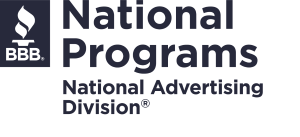
New York, NY – November 29, 2023 – Through its advertising monitoring program, BBB National Programs’ National Advertising Division (NAD) inquired about social media posts created by Cariuma Central Pte., Ltd. for its Cariuma sneakers, and recommended that Cariuma clearly and conspicuously disclose its material connection to the endorser and publisher of the posts.
Three social media posts featuring Cariuma sneakers appeared on the Instagram and Facebook accounts of Travel + Leisure (T+L), US Weekly, and The Quality Edit (TQE) and were labeled “Sponsored” below the name of the publisher. The posts included images of Cariuma sneakers and invited consumers to “shop here” or “learn more” about the sneakers.
NAD’s inquiry focused on whether the format of the challenged social media posts blurred the line between editorial content and advertising in a way that can confuse consumers. NAD assessed whether this content, which includes affiliate links but appears to be editorial, is advertising and considered whether the content was created independent of the “economic or commercial motivation” introduced by affiliate marketing revenue.
NAD determined that the three sponsored posts for Cariuma sneakers are advertising and noted that:
- Cariuma retains full editorial control over the creative content with TQE and must approve any content before publication; and
- Cariuma selected and paid for each amplified social media post with T+L, US Weekly, and TQE. As such, the posts are paid endorsements for Cariuma sneakers.
NAD concluded that even though the posts were labeled “Sponsored,” it is not clear whether the posts were sponsored by the publisher or by Cariuma. As a result, consumers were not aware that the posts are paid endorsements by Cariuma.
NAD recommended Cariuma clearly and conspicuously disclose its material connection to the endorser and publisher of the social media posts.
In its advertiser statement, Cariuma stated that it “will comply with the NAD’s recommendation” and further stated that it “respectfully disagrees with the NAD’s decision but is committed to accurate and truthful advertising.”
All BBB National Programs case decision summaries can be found in the case decision library. For the full text of NAD, NARB, and CARU decisions, subscribe to the online archive. This press release shall not be used for advertising or promotional purposes.
About BBB National Programs: BBB National Programs, a non-profit organization, is the home of U.S. independent industry self-regulation, currently operating more than a dozen globally recognized programs that have been helping enhance consumer trust in business for more than 50 years. These programs provide third-party accountability and dispute resolution services that address existing and emerging industry issues, create a fairer playing field for businesses, and a better experience for consumers. BBB National Programs continues to evolve its work and grow its impact by providing business guidance and fostering best practices in arenas such as advertising, child-and-teen-directed marketing, data privacy, dispute resolution, automobile warranty, technology, and emerging areas. To learn more, visit bbbprograms.org.
About the National Advertising Division: The National Advertising Division (NAD) of BBB National Programs provides independent self-regulation and dispute resolution services, guiding the truthfulness of advertising across the U.S. NAD reviews national advertising in all media and its decisions set consistent standards for advertising truth and accuracy, delivering meaningful protection to consumers and leveling the playing field for business.
For Immediate Release
Contact: Jennie Rosenberg,
Media Relations,
BBB National Programs,
press@bbbnp.org
Contact Information
Name: Jennie Rosenberg
Email: jrosenberg@bbbnp.org
Job Title: Media Relations
National Advertising Review Board Recommends Mint Mobile Discontinue or Modify Claim that its Unlimited Plan is “Now Just $15/Mo.”
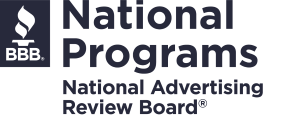
New York, NY – November 28, 2023 – A panel of the National Advertising Review Board (NARB), the appellate advertising body of BBB National Programs, recommended that Mint Mobile, LLC discontinue or modify the claim that its Unlimited plan is “now just $15/mo.”
The advertising at issue had been challenged by AT&T Services, Inc. before the National Advertising Division (NAD) as part of NAD’s Fast Track SWIFT expedited challenge process, designed for single-issue advertising cases. Following NAD’s decision (Case No. 7250), Mint Mobile appealed NAD’s recommendations.
Mint Mobile offers prepaid phone plans, which, unlike those offered by AT&T and other major wireless carriers, require customers to pay upfront before receiving service. Mint Mobile’s $15/mo. price for its Unlimited plan is a promotional rate that is only in effect for three months. After three months of service, the monthly rate increases, with the exact amount of the increase dependent on which plan the consumer selects.
At issue in the Fast-Track SWIFT challenge and appeal is whether the nature of Mint Mobile’s promotional offer was adequately disclosed.
In banner ads, on social media, and in a television commercial, Mint Mobile advertised that the price of its Unlimited plan is “now just $15/mo.” The NARB panel determined that the claim in the various advertisements conveyed that the $15/mo. price is a permanent price for Mint Mobile’s unlimited phone plans that were previously $30 to $35/mo., depending on the duration of the plan.
Further, in agreement with NAD, the NARB panel found that the current disclosure appearing in the advertisements does not meet the well understood standard requiring clear and conspicuous disclosure of material limitations for an advertised price offer. Accordingly, the disclosure was inadequate to modify the misleading claim that Mint Mobile has reduced the price of its unlimited plan to $15/month going forward.
The NARB panel recommended that Mint Mobile discontinue the claim that its Unlimited plan is “now just $15/mo.” or clearly and conspicuously disclose that the offer is a promotional or introductory offer for the first three months of service as part of the main claim or in similar size text and font in close proximity to the main claim.
Mint Mobile stated that while the challenged advertising was discontinued last month, Mint Mobile is committed to the self-regulatory process and will comply with NARB’s decision should it use the challenged claim again.
All BBB National Programs case decision summaries can be found in the case decision library. For the full text of NAD, NARB, and CARU decisions, subscribe to the online archive.
About BBB National Programs: BBB National Programs, a non-profit organization, is the home of U.S. independent industry self-regulation, currently operating more than a dozen globally recognized programs that have been helping enhance consumer trust in business for more than 50 years. These programs provide third-party accountability and dispute resolution services that address existing and emerging industry issues, create a fairer playing field for businesses, and a better experience for consumers. BBB National Programs continues to evolve its work and grow its impact by providing business guidance and fostering best practices in arenas such as advertising, child-and-teen-directed marketing, data privacy, dispute resolution, automobile warranty, technology, and emerging areas. To learn more, visit bbbprograms.org.
About the National Advertising Review Board (NARB): The National Advertising Review Board (NARB) is the appellate body for BBB National Programs’ advertising self-regulatory programs. NARB’s panel members include 85 distinguished volunteer professionals from the national advertising industry, agencies, and public members, such as academics and former members of the public sector. NARB serves as a layer of independent industry peer review that helps engender trust and compliance in NAD, CARU, and DSSRC matters.
Contact Information
Name: Jennie Rosenberg
Email: jrosenberg@bbbnp.org
Job Title: Media Relations
National Advertising Review Board Recommends Modifications to Coca-Cola’s “50% More Electrolytes” Claims
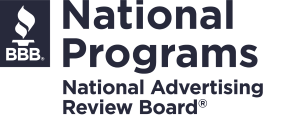
New York, NY – Nov. 27, 2023 – A panel of the National Advertising Review Board (NARB), the appellate advertising body of BBB National Programs, recommended that The Coca-Cola Company:
- Modify the claim “50% more electrolytes vs. the leading sports drink” to state “50% more electrolytes vs. Gatorade Thirst Quencher”; and
- Modify its video advertising to avoid conveying the implied message that the 50% increase in electrolytes in Powerade provides increased performance benefits and/or superior athletic performance relative to the Gatorade Thirst Quencher product.
In the underlying decision, NAD concluded that Coca-Cola’s “50% more electrolytes” claims overstated the significance of the nutrient difference and reasonably conveyed the implied messages that Powerade provides better performance and hydration than Gatorade. The NARB panel reached a different conclusion in regard to the packaging and social media claims.
The advertising at issue had been challenged by Stokely-Van Camp, manufacturer of Gatorade. Following NAD’s decision (Case No. 7198), Coca-Cola appealed NAD’s decision in its entirety. Until recently, both Powerade and Gatorade Thirst Quencher had the same electrolyte content. Earlier this year, Coca-Cola introduced a reformulated product that both parties agree contains 50% more electrolytes (sodium and potassium) than Gatorade Thirst Quencher.
Label Claim
The NARB panel concluded that in the context of the “50% more electrolytes vs. the leading sports drink” claim made on the Powerade label, the claim of 50% more electrolytes than a referenced product does not on its own imply superior performance benefits as compared to the referenced drink. The claim merely provides truthful information regarding the comparative amount of electrolytes in each sports drink.
However, because it was unclear which specific Gatorade product is referenced, the NARB panel recommended that Coca-Cola change its label to “50% more electrolytes vs. Gatorade Thirst Quencher” to clarify its valid comparative quantitative electrolyte claim.
Social Media Claims
The NARB panel found that the challenged social media posts simply provide consumers with quantitative information regarding the increase in electrolytes in Powerade and the quantity of electrolytes in Powerade vs. Gatorade Thirst Quencher. Further, the NARB panel did not find that the strong-arm emoji in the context of the comparative post communicates a superiority claim, but merely draws attention to the fact that Powerade increased its electrolytes, which are the core beneficial ingredients in any sports drink.
Video Commercial Claims
The NARB panel found that the challenged commercials link young athletes drinking Powerade with 50% more electrolytes before and during their lengthy workouts to achieving success as college athletes. Accordingly, the NARB panel determined that the commercials communicate to at least a significant minority of reasonable consumers that the 50% increase in electrolytes in Powerade provides increased performance benefits and/or superior athletic performance relative to the Gatorade Thirst Quencher product.
Because this message was not supported by the evidence in the record, the NARB panel recommended that Coca-Cola modify its video advertising to avoid conveying such a message.
Coca-Cola stated that it “applauds NARB’s determination that its ‘50% more electrolytes’ claim ‘provides truthful information’ to consumers, and will comply with NARB’s recommendation to indicate that Powerade has 50% more electrolytes than ‘Gatorade Thirst Quencher,’ rather than just ‘the leading sports drink,’ when making the claim. The challenged video advertisement is no longer being disseminated, but Coca-Cola will take NARB’s guidance into account when crafting new commercials for Powerade.”
All BBB National Programs case decision summaries can be found in the case decision library. For the full text of NAD, NARB, and CARU decisions, subscribe to the online archive.
About BBB National Programs: BBB National Programs, a non-profit organization, is the home of U.S. independent industry self-regulation, currently operating more than a dozen globally recognized programs that have been helping enhance consumer trust in business for more than 50 years. These programs provide third-party accountability and dispute resolution services that address existing and emerging industry issues, create a fairer playing field for businesses, and a better experience for consumers. BBB National Programs continues to evolve its work and grow its impact by providing business guidance and fostering best practices in arenas such as advertising, child-and-teen-directed marketing, data privacy, dispute resolution, automobile warranty, technology, and emerging areas. To learn more, visit bbbprograms.org.
About the National Advertising Review Board (NARB): The National Advertising Review Board (NARB) is the appellate body for BBB National Programs’ advertising self-regulatory programs. NARB’s panel members include 85 distinguished volunteer professionals from the national advertising industry, agencies, and public members, such as academics and former members of the public sector. NARB serves as a layer of independent industry peer review that helps engender trust and compliance in NAD, CARU, and DSSRC matters.
Contact Information
Name: Jennie Rosenberg
Email: jrosenberg@bbbnp.org
Job Title: Media Relations
National Advertising Review Board Recommends Dr. Squatch Discontinue Jukebox “Detergent” Claims; Finds Jukebox Soap “Natural” Claims Supported
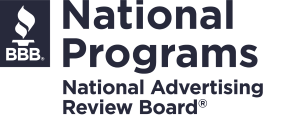
New York, NY – November 22, 2023 – A panel of the National Advertising Review Board (NARB), the appellate advertising body of BBB National Programs, recommended that Dr. Squatch, LLC discontinue referring to products that may compete with its Jukebox Soap products as consisting of, containing, or being detergents. However, the NARB panel determined that Dr. Squatch provided a reasonable basis for its “natural” claims for Jukebox Soap.
Dr. Squatch’s Jukebox brand distinguishes itself from competing bars and cleansers as “real” soap made with natural ingredients. The advertising at issue had been challenged by Unilever U.S., Inc., manufacturer of Dove brand cleansers and body washes. Following a decision by the National Advertising Division (NAD) (Case No. 7195), Dr. Squatch appealed and Unilever cross-appealed.
Detergent Claims
In agreement with NAD, the NARB panel concluded that referring to competitive products as being or containing detergents communicates the unsupported message that competitive products are harsh to the skin. The NARB panel further agreed with NAD that consumers are not likely aware of the Food and Drug Administration’s (FDA) technical definitions, and accordingly, it is misleading for Dr. Squatch to refer to the FDA’s definition in referencing competing products as “synthetic detergents.”
Natural Claims
In agreement with NAD, the NARB panel concluded that Dr. Squatch provided a reasonable basis for its “natural” claims. In so finding, the NARB panel noted that:
- An analysis of consumer expectation is the proper standard for what is or is not natural.
- Saponification would be regarded by reasonable consumers as minimal processing, and therefore consistent with identifying the product as natural.
- Jukebox products are made almost entirely from natural or naturally derived ingredients.
Claims about Jukebox’s Leadership
In the underlying decision, NAD recommended that the statement “Who run the world? Girls” in conjunction with the statement “From our world-class natural perfumers and in-house artisan soap makers to our bubbly leadership, we’re a band of music & soap-lovin’ ladies” be modified to avoid conveying the message that Jukebox is a women-run brand. The NARB panel determined that NAD reached the correct conclusion on this issue.
During the appeal, Dr. Squatch presented the NARB panel with modified advertising in which the heading “Who run the world? Girls?” has been replaced with “Meet the Band.” The NARB panel concluded that the revised advertising communicates a different message than the claim language that had been challenged and is properly supported because it refers to the hands-on, directly responsible personnel who, based on the evidence, are primarily women.
Dr. Squatch stated that it “appreciates NARB’s careful review of the record in this appeal and will comply with the recommendations made by NAD and NARB in its future advertising.”
All BBB National Programs case decision summaries can be found in the case decision library. For the full text of NAD, NARB, and CARU decisions, subscribe to the online archive.
About BBB National Programs: BBB National Programs, a non-profit organization, is the home of U.S. independent industry self-regulation, currently operating more than a dozen globally recognized programs that have been helping enhance consumer trust in business for more than 50 years. These programs provide third-party accountability and dispute resolution services that address existing and emerging industry issues, create a fairer playing field for businesses, and a better experience for consumers. BBB National Programs continues to evolve its work and grow its impact by providing business guidance and fostering best practices in arenas such as advertising, child-and-teen-directed marketing, data privacy, dispute resolution, automobile warranty, technology, and emerging areas. To learn more, visit bbbprograms.org.
About the National Advertising Review Board (NARB): The National Advertising Review Board (NARB) is the appellate body for BBB National Programs’ advertising self-regulatory programs. NARB’s panel members include 85 distinguished volunteer professionals from the national advertising industry, agencies, and public members, such as academics and former members of the public sector. NARB serves as a layer of independent industry peer review that helps engender trust and compliance in NAD, CARU, and DSSRC matters.
Contact:
Jennie Rosenberg
Media Relations
BBB National Programs
press@bbbnp.org
